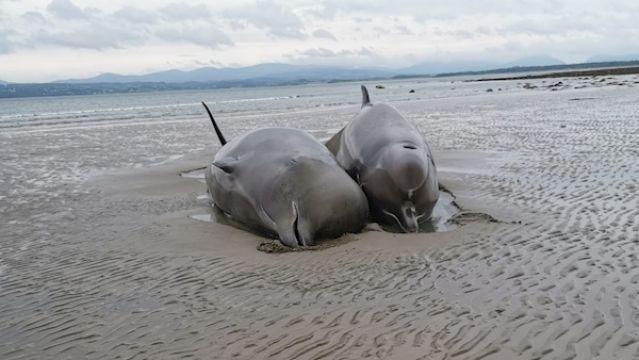The group of whales came ashore at Rossnowlagh on Wednesday morning.
A spokesperson for the Irish Whale and Dolphin Group (IWDG) said there was very little that can be done to help the dying animals.
"It looks unlikely [that they will survive] sadly. At the moment palliative care is being given by trained members of our stranding network.
"All we can do is to ask people to keep their distance in order to reduce the stress on them and to give them space and respect."
Trained staff from the group and the National Parks and Wildlife Service (NPWS) are on site.
The deep-diving offshore species of whales are the largest member of the beaked whale family.
The tide is now coming in on the live stranded animals with some stranded and some still in the water.
All are alive but stressed with high breathing rates, according to the IWDG.
Tide is now coming in on the live stranded Northern Bottlenose Whales. Some stranded and some still in water. All alive but stressed with high breathing rate. IWDG providing some first aid on the beach. NPWS and Donegal County Council on there way to assess situation too. pic.twitter.com/QrH2YgNBdJ
— Irish Whale and Dolphin Group (@IWDGnews) August 19, 2020
The volunteers are now providing some first aid on the beach.
A spokesperson for the IWDG said the euthanasia of whales of this size is very difficult without immobolin, which is not available in the Republic.
"Shooting requires highly trained personnel," the spokesperson added.
Staff from Donegal County Council are on their way to assess the situation.







